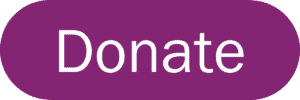Cross-posted from our partners at the NC Early Childhood Foundation
Mental health has never been more visible than now, a year and a half into the stresses of a global pandemic. While most mental health interventions are aimed at adults and adolescents, the roots of strong mental health for young people and adults go all the way back to infancy. Building strong, resilient families that can weather life’s storms is the point of the EarlyWell Initiative, led by NC Child in partnership with the NC Early Childhood Foundation and other early childhood leaders. This year EarlyWell invited those partners to the dance floor.
North Carolina’s current social-emotional health ecosystem for young children is complex, interdependent, and often uncoordinated—like a ballroom full of multiple dance floors. Each dance floor has its own style, rhythm, and music, representing the multiple systems that create the social-emotional health ecosystem. Each system has its own policies and funding streams—like a ballroom full of dance floors with competing Salsa, hip-hop, and Bhangra dancers. In order for the entire ballroom to function and serve families well, each dance floor must be well-resourced and able to execute its dance.
Convening The Dance Floors
EarlyWell brought together 12 workgroups or “dance floors” representing different sectors, including foster care, early intervention, health insurers, and early care and education. We came together to consider the scope and scale of changes our state needs to develop a robust, equitable, and accessible social-emotional health ecosystem for our state’s infants, young children, and their families.
The “dancers” are stakeholders with expertise in many different facets of early childhood mental health: health care providers, child care providers, community and family leaders, advocates, and state government leaders. They used tools like the NC Health Equity Impact Assessment to review data, develop problem statements, analyze root causes, and brainstorm solutions, from January to August 2021.
“I’m grateful for the involvement of over 100 leaders in EarlyWell’s work so far. It has truly been a collaborative process that puts the voices of those most impacted right at the center,” said Morgan Forrester Ray, Director of the EarlyWell Initiative at NC Child. “I am excited to turn these recommendations into action over the coming years.”
Centering Racial Equity And Family Voice
Race equity and family leadership were central to this process. EarlyWell partnered with Empowered Parents In Community (EPiC) to provide training and keep a commitment to racial equity at the core of the workgroups’ thinking. This involved paying attention to how race and racism interact with power within the social-emotional health system. Jovonia Lewis, Founder and Executive Director of EPiC, guided dancers to ask questions like: Who benefits and who is harmed in a situation; How does it connect to historic patterns of racism; and How can we challenge or disrupt this pattern?
Parents played important roles as dancers, speaking from their experiences navigating the social-emotional health ecosystem in North Carolina and sharing what they would like to see changed to improve services, including prevention and promotion. The workgroups also incorporated what they learned from family voices in the Lean in and Listen Up Report. Check out some of the key themes from families that help lead EarlyWell’s work here.
Developing The Recommendations
Every dance floor came up with one to three recommendations that will help to strengthen and enhance North Carolina’s early childhood social-emotional health ecosystem. All told, the dancers put forward about 30 policy and system recommendations, spanning areas of social-emotional health promotion, prevention, intervention, and treatment services. The recommendations address critical areas such as workforce development, assessment, family navigation, data, compensation, and payment structures.
What’s Next For This Dance?
NC Child will use the recommendations to develop a comprehensive action plan and policy agenda that will be carried out over the next eight to ten years, to be released in early 2022. Together with EarlyWell’s many dance partners, we will use that action plan as a foundation for advocacy in 2022 and beyond.
The dancers envision a well-resourced and well-coordinated ballroom of community programs like early intervention, home visiting, and respite care that can buffer families against extreme stress, and fortify their ability to rebound from tough times. Building families’ resilience and strength—starting at birth—allows children and their parents to thrive.
__
EarlyWell builds on the NC Pathways to Grade-Level Reading Initiative led by the NC Early Childhood Foundation and its partners. The Pathways Action Framework includes strategies and actions to ensure that NC’s social-emotional health system is accessible and high-quality. Learn more about Pathways here.


